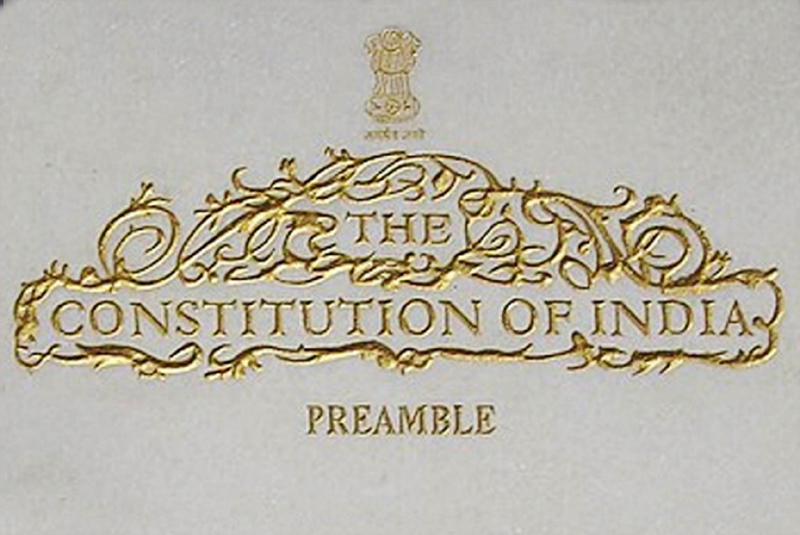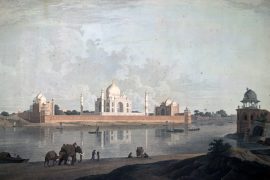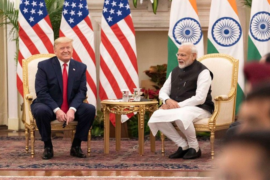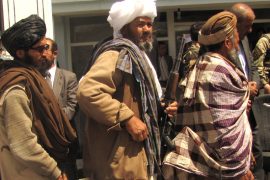In 2015, the Government of India declared November 26 as ‘Constitution Day.’ On this day, in 1949, the Constituent Assembly adopted and enacted the Constitution for an independent India. The Preamble to the Constitution of India reads:
We the People of India… in our Constituent assembly this twenty-sixth day of November 1949, do hereby adopt, enact and give to ourselves this Constitution.
The Constitution, enacted by the Constituent Assembly, came into force on January 26, 1950. Since then, Indians have been celebrating January 26 as Republic Day. However, November 26 went unnoticed for a long time.
On Republic Day, the main focus is on displaying India’s military might, celebrating the richness of cultural diversity and showcasing the nation’s progress. Not much is said about the Constitution. Perhaps, to fill this gap, the Government decided to celebrate November 26 as the ‘Constitution Day’ (also known as Samvidhan Divas) in 2015.
Since then, Constitution Day has been added to the list of the country’s national rituals. I use the word ritual intentionally for several reasons.
First, generally, rituals are blindly followed without knowing why we are doing what we are doing. Second, we do not ask questions while following rituals; a ritual calls for observance without questioning.
However, celebrating something as significant as November 26 should not become a ritual; the people of a nation must know what they are honouring. But unfortunately, that does not seem to be the case. We witness indifference and ignorance of history, culture, heritage, and constitutional values in India.
This indifference is primarily because of the corporate education system that focuses on chasing grades and rote learning. Let me give you an example. In a recent Telugu TV quiz programme named: ‘Who among you is a Crorepati’ (Meelo Evaru Koteeswarulu), the host presented a question: Who is known as Baba Saheb among four names displayed on the screen?
The young girl in the so-called ‘hot seat,’ an engineering graduate aspiring to go abroad for ‘higher studies,’ did not know the answer.
Worse, she ruled out Ambedkar. In the audience poll round, Sardar Patel got the highest votes. This pathetic lack of awareness about the Constitution – and the people who crafted the Constitution – is a matter of great shame.
India became a ‘sovereign, democratic republic‘ for the first time in history. Until then, Maharajas, Sultans, and Emperors ruled their kingdoms and fiefdoms with the might of the sword. Under that system, the lawmaker, law enforcer and the law interpreter were rolled into one individual whose writ ran unquestioned: might was right.
The Constitution, crafted by Baba Saheb Ambedkar, conclusively ended this system. It gave India a new trajectory – as a sovereign, socialist, secular democracy – where everyone is equal irrespective of caste, creed, colour, culture, education and estate. Through its path-breaking provisions, the Constitution guarantees Justice, Liberty, and Equality to all its citizens and ensures the dignity of the individual.
The Constitution is indeed a brave new journey, a paradigm shift – from a people who never had a Constitution to an assured set of rights for all citizens, equally applicable to all.
The Constitution upholds the rule of law; it guarantees that all citizens are equal before the law. Article 14 of the Constitution ordains that the State shall not deny equality before the law or the equal protection of the law to any person and that the State shall not discriminate against any citizen on the grounds of religion, race, caste, creed, or gender. Yet, Clause 4 of Article 14 declares that nothing in the Article shall prevent the State from making special provisions for the advancement of disadvantaged sections of society.
Given the importance of understanding the tenets of the Constitution, India’s education system must prioritise the study of the polity touching all its aspects, including social, economic and political; social studies must find a place of honour in the academic curriculum at various stages of our education.
If done, young people would learn about the Constitution and also know about the people who framed it – including Babasaheb Ambedkar, who is widely considered its chief architect.
Baba Saheb Ambedkar’s principal contribution is not only in framing the Constitution. He has also protected the interests of the Scheduled Castes and Scheduled Tribes through the Constitution. Without the requisite constitutional provisions and protections, Dalits would not have been allowed to enter the Legislatures; they would not have been admitted to educational institutions or offered jobs in the Government. But for Ambedkar, the Dalits would have been left behind. The nation would not have cared to provide them space in the mainstream processes but for the Constitution.
Today, is the Government serious about promoting constitutional values on Constitution Day or is this day a mere ritual for our leaders to mouth inanities?
Sadly, people who take oaths in the name of the Constitution and swear to uphold it breach its tenets. This is evident from how Presiding Officers handle petitions filed under the Anti-Defection Law and how Governors, custodians of the Constitution, abuse it by sitting over Bills passed by the Legislature using technicalities within the Constitution. The court is outspoken on miscellany while remaining silent on the nation’s critical matters.
The Government has kept the Office of the Deputy Speaker of the Lok Sabha unfilled for the entire five-year period for the first time since 1950. Do we call it respect for the Constitution?
If Parliament violates the constitutional spirit, how can we expect the people to follow its spirit and respect its precepts?
In today’s world, this seems to be a utopian ideal. But I am cautiously optimistic about the potential it holds to educate the people of this country. The Constitution Day must not be a mere ritual. Nor should it be used for political propaganda. It must be a genuine opportunity for the people of the country to learn about the privileges that the Constitution bestows upon them.
-30-
Copyright©Madras Courier, All Rights Reserved. You may share using our article tools. Please don't cut articles from madrascourier.com and redistribute by email, post to the web, mobile phone or social media.Please send in your feed back and comments to [email protected]











